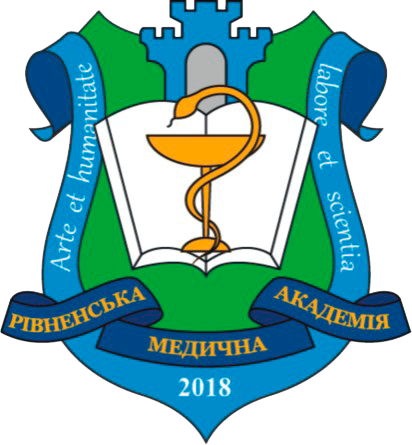APPLICATION OF A MULTIDISCIPLINARY APPROACH IN A CLINICAL MANAGEMENT OF VEGETATIVE DISORDERS INDUCED BY INCREASED ANXIETY AT PATIENTS WITH METABOLIC SYNDROME
DOI:
https://doi.org/10.32782/health-2024.1.23Keywords:
metabolic syndrome, autonomic disorders, anxiety disorders, physical rehabilitationAbstract
Our study aimed to analyze the impact of complex physical rehabilitation on the state of autonomic regulation in the
initial phases of metabolic syndrome, under conditions of chronic stress using a multidisciplinary approach. After all,
according to modern scientific sources, multiprofessional rehabilitation is the effective basis of metabolic syndrome therapy.
In addition, a proportional relationship between excess weight and neuropsychiatric disorders, including anxiety and
depression, and the need for therapeutic intervention during the period of initial growth of the body mass index, when
dyslipidemic processes and energy deficit occurs, and autonomic regulation disorders are established. Homeostasis features
and the level of anxiety were determined by the method of heart rate variability assessment and assessment of the emotional
sphere according to Beck's anxiety scale. The patients were divided into 2 groups: the main group (10 people, including
3 men and 7 women aged 47–60 years), who for six months received a complex of medical basic therapy and rehabilitation
measures involving physiotherapeutic and ergotherapeutic interventions; a control group (10 people, including 4 men and
6 women of the same age), who received the prescribed medical basic therapy (vasoactive, antihypertensive, hypoglycemic
drugs, statins) and followed recommendations for optimizing lifestyle and nutrition. The conducted studies revealed the
peculiarities of homeostasis in the form of a tendency to sympathicotonia and a low rate of adaptation processes, when the
the body's compensatory stress reactions index – the tension index (ТІ) at rest is 125.1 units against the norm of 65.0 units.
References
Bannerjee S. Study on Yoga intervention along with diet on hypothyroidism assoсiаted with obesity among sedentary working women in West Bengai. International Journal of Yoga and Alied Sciences. 2019. № 8(1). Р. 18–23.
Stahel P., Nahmias A., Shawn K Sud at al. Evaluation of the genetic association between adult obesity and neuropsychiatric disease. Diabetes. 2019. № 10. 2235–2246. DOI: https:// doi: 10.2337/db18-1254.
Shuang Ji, 1, Yujiao Chen, 1, Yuying Zhou, Yiting Cao, Xiao Li at al. Association between anxiety and metabolic syndrome: An updated systematic review and meta-analysis. Frontiers in Psychiatry. 2023. № 14. Р. 01–09. DOI: https://doi: 10.3389/fpsyt.2023.1118836.
Yang Ang M., Takeuchi F., Kato N. Deciphering the genetic landscape of obesity: a data-driven approach to identifying plausible causal genes and therapeutic targets. Journal of Human Genetics. 2023. № 68(8). Р. 823–833.
Кондратенко А.П. Когнітивні та емоційні розлади хворих на цукровий діабет ІI типу. Експериментальна клінічна медицина. 2021. № 4(89). Р. 49–52. DOI: https://doi.org/lO.35339/ekm.2020.89.04.07.
Міщенко В.М., Здесенко І.В., Дмитрієва О.В., Міщенко В.К. Роль психоемоційних розладів у реабілітації постінсультних хворих. Український вісник психоневрології. 2021. № 3. C. 12–17. DOI: https://doi.org/10.36927/2079-0325-V29-is3-2021-2.
Орленко В.Л., Іваськіва К.Ю., Добровинська О.В., Тронько К.М., Болгарська С.В., Прохорова Г.О. Удосконалені методи лікування хворих на ожиріння на основі вивчення деяких патогенетичних чинників цього захворювання. Ендокринологія. 2023. Т. 28. № 2. Р. 136–150. DOI: https:// doi.org/10.31793/1680-1466.2023.28-2.136.
Хаустова О.О. Тривожні розлади в умовах перманентного стресу. Неврологія. Психіатрія. Психотерапія. 2023. № 3(66). С. 21–22.
Янушпольська О.О., Калмикова Ю.С., Калмиков С.А. Аналіз сучасних засобів фізичної терапії при аліментарно-конституціональному ожирінні. Фізична реабілітація та рекреаційно-оздоровчі технології. 2020. № 5(2). С. 11–17. DOI: https://doi.org/10.15391/prrht.2020-5(2).02.





